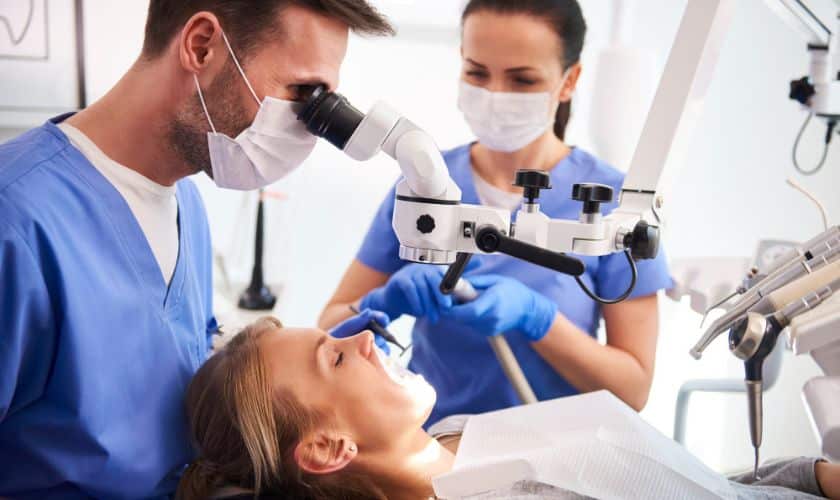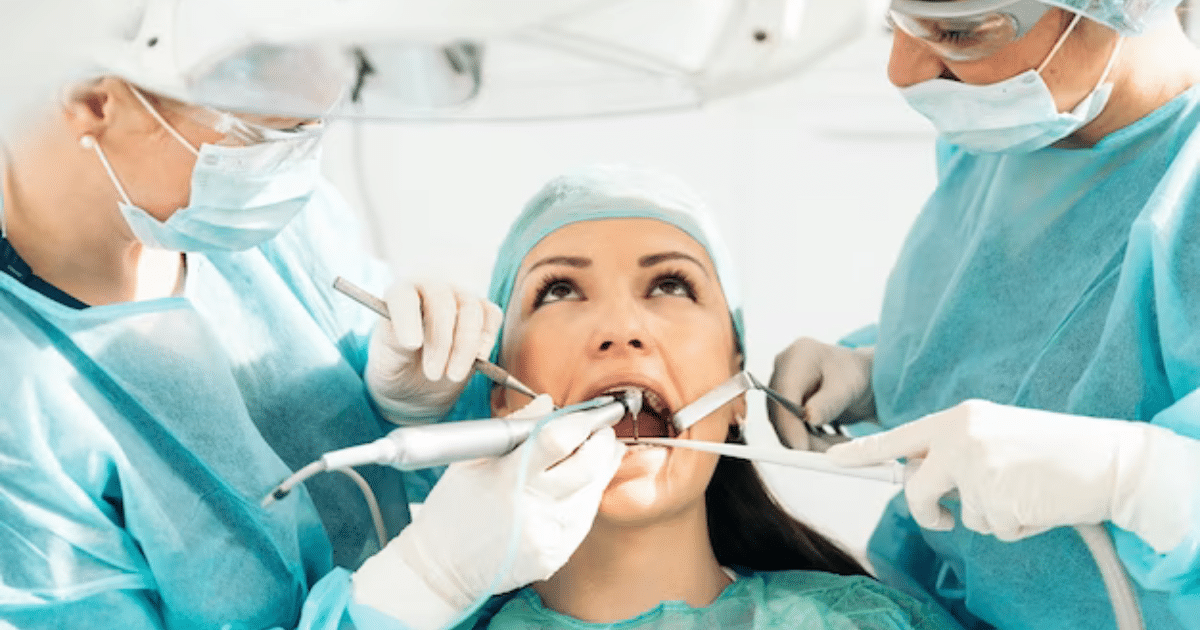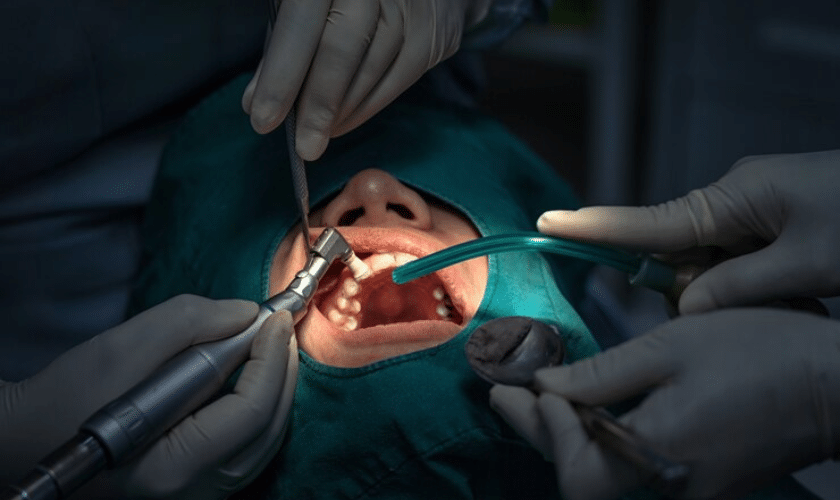
Welcome to the transformative journey of oral surgery, where the path from pain to perfection unfolds. Oral surgery encompasses a range of procedures aimed at improving dental health, restoring function, and enhancing aesthetics. From wisdom tooth extraction and dental implants to corrective jaw surgery and gum grafting, it offers solutions to various dental concerns. Through precision, skill, and advancements in technology, the journey of oral surgery leads to a radiant smile and improved oral well-being. Join us as we delve into the world of oral surgery, exploring the procedures, benefits, and the transformative power it holds in restoring dental health and achieving perfection.
Common Oral Health Concerns
Common oral health concerns that can be addressed through oral surgery include:
1. Wisdom Teeth Extraction: Wisdom teeth, also known as third molars, can often become impacted or cause crowding, leading to pain, infection, and other oral health issues. Extraction of these teeth is a common oral surgery procedure to alleviate discomfort and prevent complications.
2. Dental Implants: Missing teeth can affect both oral function and aesthetics. Dental implants, a surgical solution, involve the placement of artificial tooth roots into the jawbone to support prosthetic teeth. This procedure restores missing teeth and improves chewing ability, speech, and overall oral health.
3. Corrective Jaw Surgery: Misaligned jaws can result in bite problems, difficulty in chewing, speech issues, and facial asymmetry. Corrective jaw surgery, also known as orthognathic surgery, can reposition the jaw to improve alignment, function, and facial aesthetics.
4. Gum Grafting: Gum recession can exposed tooth roots, causing sensitivity, aesthetic concerns, and an increased risk of decay. Gum grafting involves transplanting gum tissue to cover the exposed roots, improving gum health and enhancing the appearance of the smile.
Addressing these common oral health concerns through oral surgery procedures can alleviate pain, improve oral function, enhance aesthetics, and contribute to long-term oral health and overall well-being.
Benefits of Oral Surgery
Oral surgery offers several benefits for individuals:
1. Alleviation of Pain and Discomfort: It procedures can effectively address oral health issues that cause pain and discomfort. Whether it’s removing impacted wisdom teeth or treating jaw misalignments, oral surgery can provide relief from oral pain and improve overall quality of life.
2. Improved Oral Function: Dental problems, such as missing teeth or misaligned jaws, can affect oral function, including chewing, speaking, and swallowing. It, such as dental implants or corrective jaw surgery, can restore proper function, allowing individuals to eat, speak, and enjoy daily activities with greater ease.
3. Enhanced Aesthetics and Confidence: It can have a transformative effect on one’s appearance, resulting in an improved smile and facial harmony. Procedures like dental implants and gum grafting can enhance the aesthetics of the teeth and gums, boosting self-confidence and self-esteem.
4. Long-Term Oral Health and Prevention of Complications: By addressing underlying oral health concerns through oral surgery, individuals can prevent further complications and maintain long-term oral health. For example, removing impacted wisdom teeth can prevent infection and damage to adjacent teeth, while corrective jaw surgery can improve bite alignment and reduce the risk of future dental issues.
These benefits highlight the positive impact of oral surgery, not only in terms of relieving pain and improving function but also in enhancing aesthetics and promoting long-term oral health and overall well-being.
The Oral Surgery Procedure
The oral surgery procedure involves several key aspects:
1. Preoperative Evaluation and Consultation: Before the surgery, a thorough evaluation is conducted to assess the individual’s oral health and determine the most appropriate treatment plan. Consultation with the oral surgeon includes discussions about the procedure, anesthesia options, and expectations.
2. Anesthesia and Patient Comfort: Depending on the complexity of the procedure and individual preferences, various anaesthesia options may be used, including local anaesthesia, intravenous sedation, or general anaesthesia. The chosen method ensures patient comfort and a pain-free experience during the surgery.
3. Step-by-Step Overview of the Procedure: The specific steps of the procedure depend on the type of oral surgery being performed, whether it’s wisdom tooth extraction, dental implant placement, corrective jaw surgery, or another procedure. The oral surgeon will follow the planned approach, ensuring precision and care throughout the process.
4. Post-operative Care and Recovery: After the surgery, the oral surgeon provides post-operative care instructions to promote proper healing and minimize discomfort. This may include guidelines for pain management, oral hygiene practices, dietary restrictions, and follow-up appointments to monitor progress and address any concerns.
Understanding the oral surgery procedure helps individuals prepare for the surgery, have realistic expectations, and feel confident in the hands of their oral surgeon. Following post-operative care instructions and maintaining regular communication with the oral surgeon are crucial for a successful recovery and optimal results.
FAQs
1. Is it painful?
During this procedure, local anaesthesia or other forms of sedation are typically used to ensure that patients are comfortable and pain-free during the procedure. After the surgery, some discomfort and swelling may be expected, but pain can be managed with prescribed pain medications.
2. How long does it take?
The duration varies depending on the specific procedure being performed. Simple procedures like wisdom tooth extraction may take around 30 minutes to an hour, while more complex surgeries such as dental implant placement or corrective jaw surgery can take several hours. Your oral surgeon will provide a more accurate estimate based on your specific case.
3. Are there any risks or complications associated with this procedure?
As with any surgical procedure, there are potential risks and complications associated with oral surgery. These may include infection, bleeding, nerve damage, dry socket (after tooth extraction), or complications related to anesthesia. However, these risks are relatively rare, and your oral surgeon will discuss them with you beforehand and take necessary precautions to minimize them.
4. How long is the recovery period after oral surgery?
The recovery period varies depending on the type of oral surgery performed and the individual’s healing process. In general, it can take a few days to a few weeks for the initial recovery. It is important to follow post-operative care instructions provided by your oral surgeon, which may include pain management, dietary restrictions, and proper oral hygiene practices.
5. Will I need to modify my diet after oral surgery?
Depending on the type of surgery, your oral surgeon may recommend a modified diet during the initial recovery period. Soft or liquid foods are commonly advised to avoid putting excessive pressure on the surgical site. It is important to follow the specific dietary guidelines provided by your oral surgeon to aid in healing and minimize any potential complications.
It is important to discuss any specific questions or concerns you have about your surgery with your oral surgeon, as they can provide personalized information and address any individualized needs or considerations.
Source : DentaVacation
In conclusion, oral surgery offers a transformative journey from pain to perfection, addressing various oral health concerns and restoring oral function and aesthetics. With skilled oral surgeons and advancements in techniques and technology, oral surgery paves the way to improved oral health, increased confidence, and a radiant smile. Embrace the journey of oral surgery and unlock the potential for optimal oral well-being.


